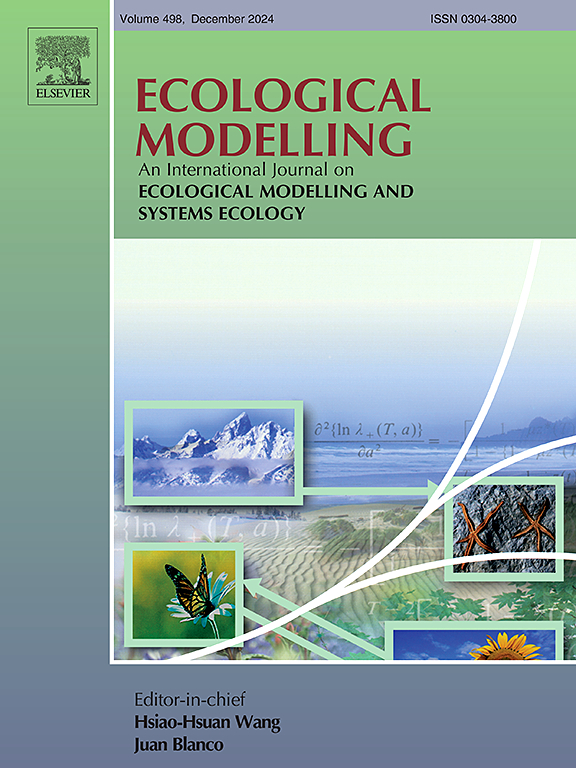Simulating fishery dynamics by combining empirical data and behavioral theory
IF 2.6
3区 环境科学与生态学
Q2 ECOLOGY
引用次数: 0
Abstract
Understanding human decision-making in the context of complex fisheries socio-ecological systems remains one of the key challenges for ecosystem-based management. Agent-based models (ABM) are increasingly seen as one of the most promising methods to simulate human decision-making. In many fishery models, human behavior is highly simplified and reduced to an economic motivation, although scientific literature suggests that it is more multi‑facetted. Here, we present FISHCODE a spatio-temporal ABM for German fisheries in the southern North Sea. Our decision‑making submodel combines different behavioral motivations, i.e. habitual behavior, profit-maximization, competition, conformism, and planning insecurity. Using highly resolved information on fishing trips, we parameterized model parameters either straight from data or through pattern‑oriented modelling. Model validation showed that model outputs were in realistic ranges when compared to observed data. We applied FISHCODE to assess scenarios of two growing challenges to fisheries in the North Sea: expansions of offshore wind farms and increasing fuel prices.

求助全文
约1分钟内获得全文
求助全文
来源期刊

Ecological Modelling
环境科学-生态学
CiteScore
5.60
自引率
6.50%
发文量
259
审稿时长
69 days
期刊介绍:
The journal is concerned with the use of mathematical models and systems analysis for the description of ecological processes and for the sustainable management of resources. Human activity and well-being are dependent on and integrated with the functioning of ecosystems and the services they provide. We aim to understand these basic ecosystem functions using mathematical and conceptual modelling, systems analysis, thermodynamics, computer simulations, and ecological theory. This leads to a preference for process-based models embedded in theory with explicit causative agents as opposed to strictly statistical or correlative descriptions. These modelling methods can be applied to a wide spectrum of issues ranging from basic ecology to human ecology to socio-ecological systems. The journal welcomes research articles, short communications, review articles, letters to the editor, book reviews, and other communications. The journal also supports the activities of the [International Society of Ecological Modelling (ISEM)](http://www.isemna.org/).
 求助内容:
求助内容: 应助结果提醒方式:
应助结果提醒方式:


